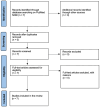Copycat in Suicide: A Systematic Review of the Literature
- PMID: 39685577
- PMCID: PMC11641853
- DOI: 10.3390/jcm13237118
Copycat in Suicide: A Systematic Review of the Literature
Abstract
Background: The "copycat effect" is a psychological phenomenon in which a person's actions influence the behavior of others, leading to imitations of behaviors, events, or ideas. It is often observed in contexts such as crimes, suicides, or violent behaviors, where media coverage of an event can trigger similar reactions in other people. Usually, many studies associate the copycat phenomenon with homicide or serial crimes. Little attention is paid to the phenomenon of emulation in suicide and, therefore, to the copycat phenomenon in this context. Methods: In our study, a systematic review of the literature was carried out using keywords related to copycat and suicide. Subsequently, each study was read and analyzed. Results: The results were compared with each other and demonstrated how it is essential to mitigate the resonance of suicidal events, especially through the media and social networks. In particular, this risk of emulation is greater among young people who are exposed to a continuous external source of information through news from the web in an incessant and constant way. This risk increases most immediately after the publicity of the suicidal event in a limited period of time. Conclusions: Unfortunately, little attention is given to the analysis of the copycat phenomenon, which causes an underestimation of the data related to suicide emulation, especially from the preventive perspective of a phenomenon that is still widespread.
Keywords: copycat; homicide; murder; suicide.
Conflict of interest statement
The authors declare no conflicts of interest.
Similar articles
-
Quantitative exponential modelling of copycat suicides: association with mass media effect in South Korea.Epidemiol Psychiatr Sci. 2015 Apr;24(2):150-7. doi: 10.1017/S204579601400002X. Epub 2014 Feb 4. Epidemiol Psychiatr Sci. 2015. PMID: 24495411 Free PMC article.
-
Age and sex subgroups vulnerable to copycat suicide: evaluation of nationwide data in South Korea.Sci Rep. 2019 Nov 21;9(1):17253. doi: 10.1038/s41598-019-53833-8. Sci Rep. 2019. PMID: 31754190 Free PMC article.
-
Suicide announcement on Facebook.Crisis. 2011;32(5):280-2. doi: 10.1027/0227-5910/a000086. Crisis. 2011. PMID: 21940257
-
Does suicide contagion (Werther effect) take place in response to social media? A systematic review.Span J Psychiatry Ment Health. 2024 Jun 5:S2950-2853(24)00032-2. doi: 10.1016/j.sjpmh.2024.05.003. Online ahead of print. Span J Psychiatry Ment Health. 2024. PMID: 38848950 Review.
-
"Inflaming your neighbors": copycat firesetting in adolescents.Int J Offender Ther Comp Criminol. 2014 Sep;58(9):1020-32. doi: 10.1177/0306624X13492657. Epub 2013 Jul 5. Int J Offender Ther Comp Criminol. 2014. PMID: 23832794 Review.
References
-
- McKay S.A. Ph.D. Thesis. Walden University; Minneapolis, MN, USA: 2020. [(accessed on 10 October 2024)]. Mass Murderers: A Case Study Analysis of Social Media Influence and Copycat Suicide. Available online: https://scholarworks.waldenu.edu/dissertations/
-
- Surette R. Oxford Research Encyclopedia of Criminology. Oxford University Press; Oxford, UK: 2017. [(accessed on 10 October 2024)]. Copycat Crime. Available online: https://oxfordre.com/criminology.
-
- Aquila I., Sacco M.A., Aquila G., Raffaele R., Manca A., Capoccia G., Cordasco F., Ricci P. The Reconstruction of the Dynamic of a Murder Using 3D Motion Capture and 3D Model Buildings: The Investigation of a Dubious Forensic Case. J. Forensic Sci. 2019;64:1540–1543. doi: 10.1111/1556-4029.14041. - DOI - PubMed
Publication types
LinkOut - more resources
Full Text Sources


